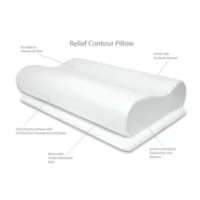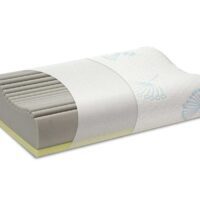What are the Best Exercises for Neck Pain Relief?

Neck discomfort can disrupt daily life, often due to factors like poor posture or prolonged desk work. Regular neck exercises offer a straightforward yet effective solution to alleviate this discomfort. Here’s a comprehensive guide, incorporating a physiotherapist’s perspective, to help you understand the importance of neck exercises and how to integrate them into your routine effectively.
Why You Should Do Neck Exercises
Neck exercises play a crucial role in strengthening muscles that support the neck, shoulders, and upper back. This added strength helps reduce strain, improves posture, and supports the head more effectively, thereby preventing neck pain and discomfort.
Simple and Effective Neck Exercises
Neck Rotations: Slowly turn your head from left to right and vice versa, feeling a gentle stretch in the neck muscles.
Neck Retractions: Sit or stand upright, then gently draw your head back, as if trying to make a double chin. Hold briefly and relax to strengthen the muscles at the front of the neck.
Neck Tilts: Tilt your head to each side, bringing your ear towards your shoulder. Hold the stretch briefly, then switch sides to target different muscle groups.
How Often Should You Do These Exercises?
For optimal results, aim to perform these neck exercises for 5-10 minutes, several times a day, especially if you spend extended periods sitting at a desk.
Can Neck Exercises Help with Tension Headaches?
Yes, neck exercises can effectively reduce tension headaches associated with neck and shoulder tension. Regular practice helps release muscle tightness, thereby decreasing both the frequency and intensity of headaches.
Recent Research Findings
A systematic review and meta-analysis published in the Journal of Orthopaedic & Sports Physical Therapy assessed the effectiveness of exercise interventions in preventing neck pain. The review included five randomized controlled trials with 1722 participants, mainly office workers. The analysis found moderate-certainty evidence that exercise interventions likely reduce the risk of new neck pain episodes within 12 months compared to no or minimal intervention. (Teichert, F etc al 2023).
Understanding the Risks and Safety Tips
When performing neck exercises, it’s crucial to do so slowly and correctly to avoid injury. Sudden movements or excessive force should be avoided. If you experience any discomfort or pain, stop immediately and consult with a physiotherapist for guidance on suitable exercises.
Habits to Prevent Neck Discomfort
In addition to exercises, adopting good habits can further alleviate neck discomfort:
- Maintain Good Posture: Whether sitting or standing, keep your spine aligned and shoulders relaxed.
- Take Regular Breaks: Incorporate short breaks throughout your day to stretch and move, reducing muscle stiffness.
- Ergonomic Workspace: Adjust your desk and chair height to ensure optimal ergonomic support, minimising strain on your neck and back.
What to Do?
To personalise your neck exercise routine and address specific concerns, seek professional advice from a qualified physiotherapist. They can provide tailored exercises and techniques based on your individual needs and medical history.
How Soon Can You Expect Results?
Results from neck exercises vary among individuals. Some may experience relief within hours, while others may notice improvement over several weeks. Consistency in performing exercises and maintaining good habits is key to long-term benefits.
Conclusion
In conclusion, incorporating neck exercises into your daily routine can significantly alleviate discomfort in the neck and upper back region. Consult with a physiotherapist to develop a personalised exercise plan that suits your needs and helps you achieve a pain-free neck. Start today and experience the positive impact of regular neck exercises on your overall well-being.
For more information on managing neck pain, consult with a physiotherapist or healthcare provider.






























































